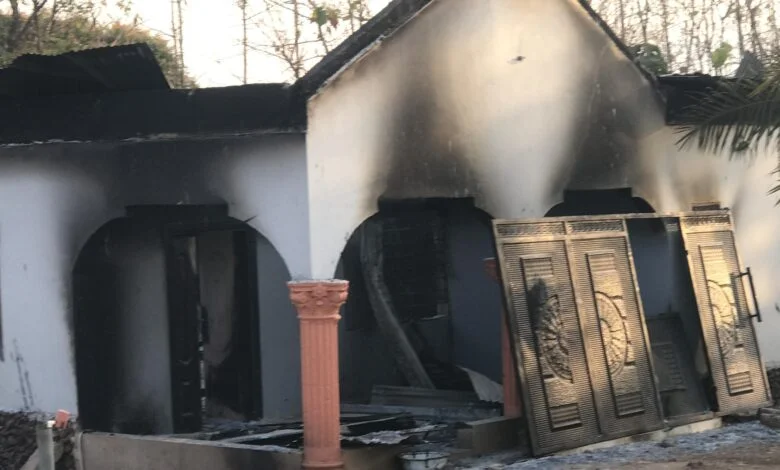The recent resurgence of conflict in Nkwanta, located in the Oti Region of Ghana, has prompted a swift and decisive response from national security forces, resulting in the arrest of 50 individuals suspected of involvement in the violence. This targeted operation, conducted in Shiare on the morning of Tuesday, January 21st, marks a significant step towards restoring peace and order in the troubled region. The apprehended individuals will undergo a comprehensive screening process to determine the extent of their involvement in the conflict before any legal proceedings are initiated. This meticulous approach aims to ensure that only those directly responsible for the violence face the full force of the law, while protecting the rights of innocent individuals.
The severity of the situation in Nkwanta prompted a high-level visit from National Security Coordinator, DCOP Osman Abdul Razak, who travelled to the region to assess the situation firsthand. His visit included meetings with traditional leaders from the opposing factions involved in the conflict, underscoring the government’s commitment to fostering dialogue and peaceful resolution. This engagement with local leaders recognizes the crucial role traditional authorities play in mediating disputes and influencing community behavior. By facilitating communication and encouraging reconciliation between the feuding parties, the government hopes to address the root causes of the conflict and prevent further violence.
The human cost of the renewed hostilities in Nkwanta has been significant. Oti Regional Police Commander, DCOP Alex Acquah, provided a grim update on the conflict’s toll, revealing that six lives have been tragically lost, ten individuals have sustained injuries, and twelve homes, along with a shop, have been destroyed. These statistics paint a stark picture of the devastating impact of the conflict on the local community, highlighting the urgent need for effective intervention to prevent further loss of life and property. The destruction of homes and businesses not only disrupts livelihoods but also contributes to instability and displacement, further exacerbating the challenges faced by the affected population.
The underlying causes of the conflict in Nkwanta appear to stem from longstanding chieftaincy and land disputes, issues that continue to plague several communities across Ghana. DCOP Osman Abdul Razak emphasized the pervasive nature of these disputes and their potential to escalate into violence if left unaddressed. He highlighted the necessity for improved collaboration among various security agencies to effectively tackle these recurring problems. Strengthening inter-agency cooperation, including information sharing and joint operations, will enable a more coordinated and comprehensive response to potential conflict triggers, enhancing the ability of security forces to prevent violence and maintain peace.
The joint efforts of the various security agencies involved in managing the Nkwanta crisis have been commended by Chief of Army Staff, Maj Gen Bismarck Kwasi Onwona. He praised the coordinated actions of the security personnel, emphasizing their crucial role in stabilizing the region. The effective deployment of security forces, combined with their commitment to restoring order, has been instrumental in containing the violence and preventing further escalation. This coordinated approach demonstrates the importance of inter-agency collaboration in responding to complex security challenges and underscores the dedication of Ghana’s security forces to protecting its citizens.
The situation in Nkwanta remains a matter of serious concern, demanding continued vigilance and proactive measures to maintain peace and prevent further outbreaks of violence. The arrest of 50 suspects, the engagement with traditional leaders, and the deployment of security forces represent significant steps towards restoring stability. However, addressing the root causes of the conflict, particularly the underlying chieftaincy and land disputes, remains a critical challenge. Long-term peace and security in Nkwanta will require sustained efforts to foster dialogue, promote reconciliation, and strengthen local governance structures to resolve these underlying issues effectively. The government’s commitment to fostering collaboration among security agencies and engaging with local communities represents a promising approach to preventing future conflicts and building a more peaceful and secure future for the region.


